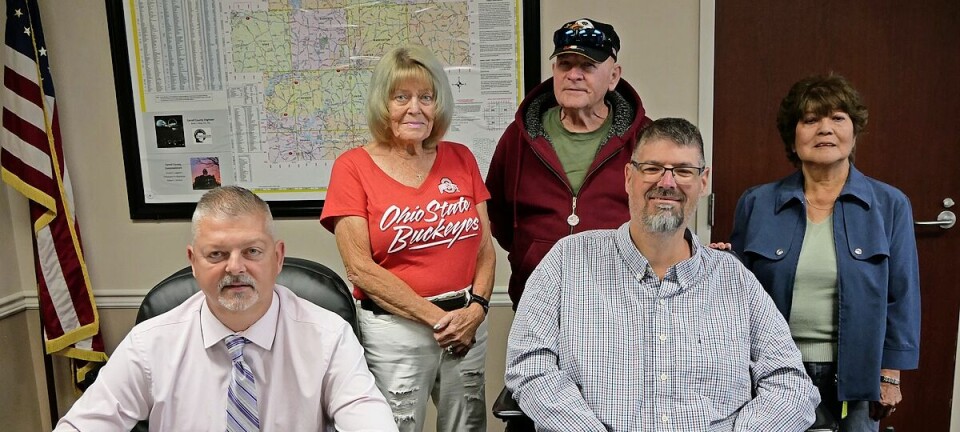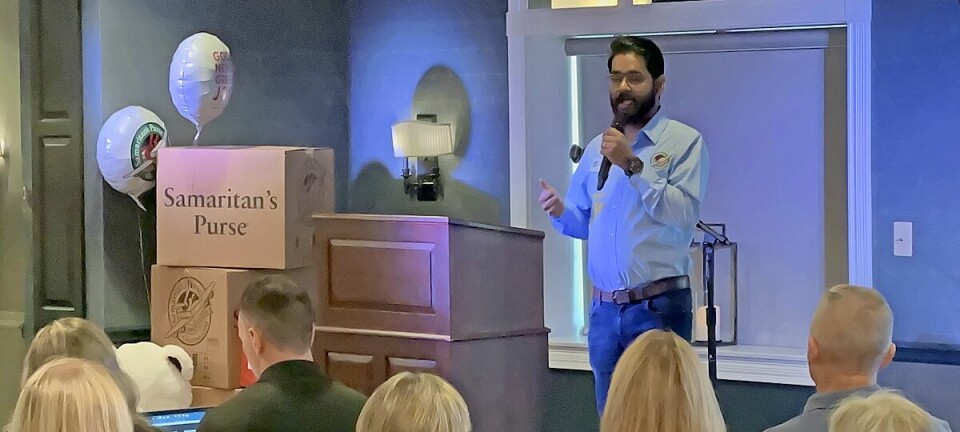Farm Bureau to host Fireside Farm to Table fundraiser

The Wayne County Ohio Fire Rescue Regional Training Facility in Apple Creek is building a new grain safety facility to educate farmers to be equipped and trained to address agricultural hazards. Wayne County Farm Bureau will hold a fundraiser dinner on Thursday, July 19 to help in this effort.
The Wayne County Fireside Farm to Table dinner will be held at the Wayne County Regional Training Facility at 2311 S. Millborne Road in Apple Creek from 6-8:30 p.m. Tickets are $50 and can be purchased online at www.eventbrite.com.
Agriculture ranks are among the most dangerous industries in the U.S., and a portion of these deaths occur in grain bins or grain-related situations. According to Purdue University, a recent high for grain entrapment deaths was in 2010 when 59 incidents occurred and 31 people died. There were 42 grain-related incidents in 2016 with 22 fatalities.
Lindsay Shoup, regional organizational director of the Ohio Farm Bureau, said proceeds from the dinner will support construction of the grain safety facility, which will be constructed at the Wayne County Regional Training Facility.
“We are a nonprofit organization, so we have to seek funding in addition to grants and the very generous help we get from area organizations and businesses,” Shoup said.
Of the dinner, Shoup said, “It will be a nice evening out with local food and wine provided by area producers such as TJ’s and Troutman Vineyards.”
Shoup said there will be raffles, a silent auction and a wine cork pull.
Farm Bureau is still accepting cash and items for auction. Anyone wishing to make a donation should call 330-263-7456.
The event will be held in any weather as there is an indoor auditorium.
Shoup said the Wayne County Fire and Rescue Regional Training Facility is a “hidden gem” of Wayne County.
According to Wayne County Farm Bureau President Bob Hange, the facility trains not only Wayne County, but also regionally as well as a six-state area. The Regional Training Facility already has a new burn building, a shopping mall, an auditorium, a dive pond and facilities for doing crude oil burns.
“We actually are the only facility in the United States licensed to do crude oil burns, and we have 2,000 students a year for that alone,” Hange said. “It will have the bins and a building for year-round training.”
The grain bin rescue training would help farmers learn how to safely prevent grain entrapment situations and how to deal with them if and when they unfortunately occur.
Currently the bulk of training for bin safety throughout Ohio is done using the Ohio State Grain Comprehensive Trailer. This unit is on a trailer and includes a small bin and platform for grain safety demonstration purposes.
CART has mobility as an advantage, but its drawback is its small size, only accommodating two to three people within the bin, so large classes or groups of employees cannot see what training is being done within the bin.
Hange said the Regional Training Facility’s site will be much larger and more comprehensive.
Besides having a building, the top of the silo includes a training platform for observers to see the demonstrations. Harnesses attached to the ceilings are crucial in installing a cofferdam that goes around the trapped individual and keeps the grain from continuing to collapse on them, according to Hange.
The bins are a $200,000 project, according to Hange, whose family has been active in the Wayne County Farm Bureau for more than a hundred years.
It is hoped the project will be completed by fall. “We plan to be breaking ground this month. We’re just waiting on permits,” Hange said.
Bureau member Brandon Nettleton said some of the groups using the training facilities already at the site include the Ohio National Guard; the Federal Bureau of Investigation; and numerous local, regional, state and national law enforcement and safety entities.
According to Nettleton, these groups do trainings such as water rescues, confined space, high-angle rope rescues and numerous more.
Of the grain bin rescue project, Ohio Farm Bureau regional operations director Shoup said, “A fire department could go 20 years without an incident, but if we can provide equipment and training to save just one life, it’s worth it.”

























